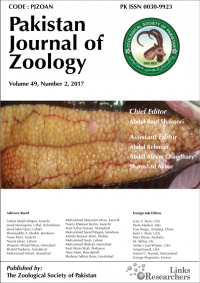Time Budget and Activity Rhythm of the Mandarin Duck Aix galericulata in the Poyang Lake Watershed
Time Budget and Activity Rhythm of the Mandarin Duck Aix galericulata in the Poyang Lake Watershed
Zhi YiJin1, Shao MingQin1,*, Cui Peng2 and Chen Bin1
ABSTRACT
To share on other social networks, click on any share button. What are these?










